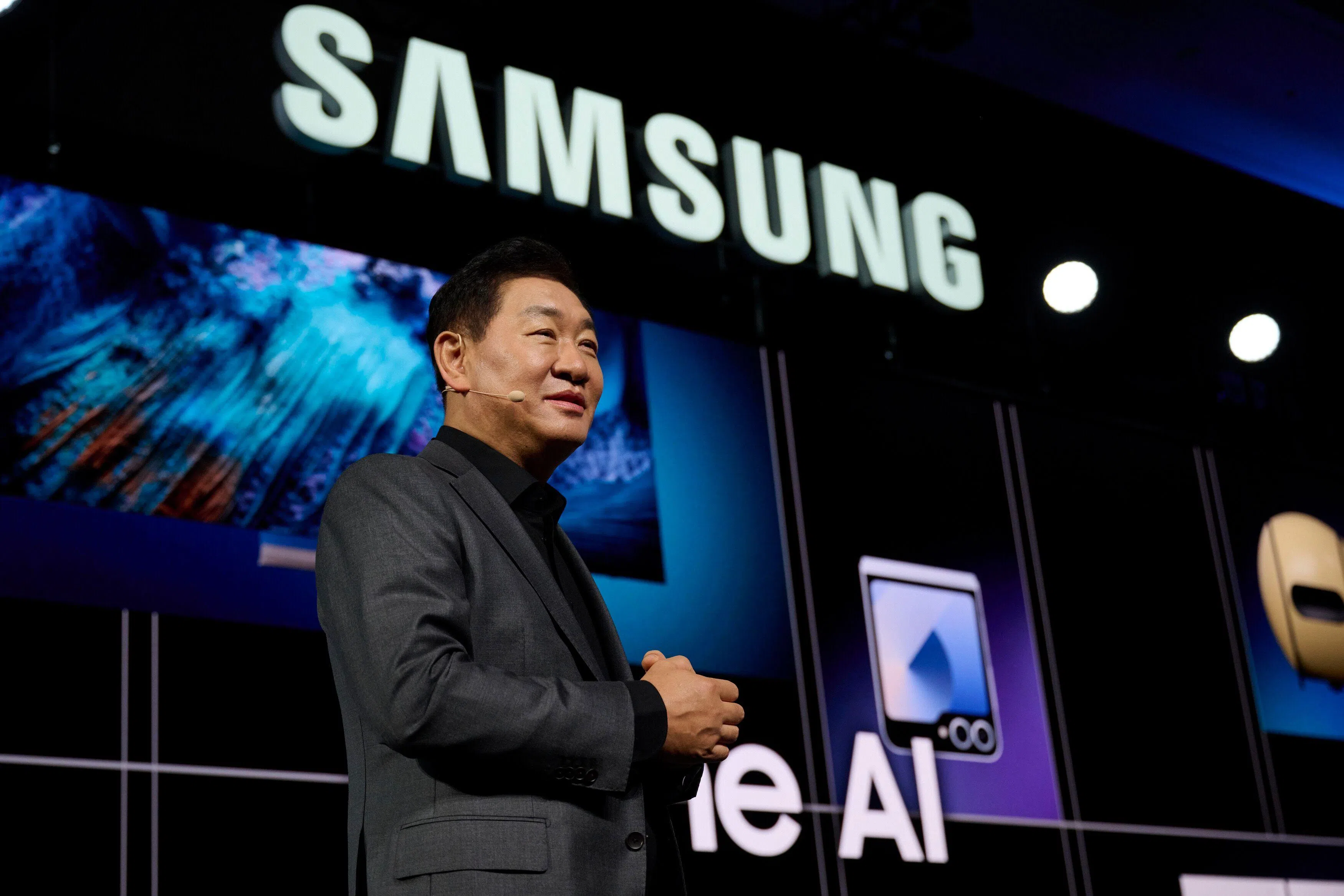SAMSUNG Electronics is ramping up investment in artificial intelligence (AI) for consumer electronics, betting on its ubiquitous presence in gadgets from smartphones to TVs to help it stake out a spot in the AI arena.
Samsung is counting on its unique market position as a leader in not just mobile devices but also home appliances such as refrigerators and washers, chief executive officer Han Jong-Hee said in an interview at CES in Las Vegas. The company wants to better connect the half-billion devices it sells every year to help make up for missteps that have cost it the lead against big tech rivals in areas such as top-end memory and generative AI.
South Korea’s most valuable company saw its shares slump by a third in 2024 as it failed to close the gap on compatriot SK Hynix in the contest to sell advanced memory for AI accelerators. Prolonged delays in securing Nvidia’s approval for its high-bandwidth memory, or HBM, chips translated to a loss of investor confidence, despite a strong year from its smartphone group. At CES, Samsung chose to emphasise its advantage in smart home technology.
Unlike rivals Apple, Amazon.com and Alphabet’s Google, Samsung’s home connectivity hubs are built directly into appliances consumers are buying anyway. Under Han’s leadership, the company has been installing AI chips in its fridges, washing machines and robot vacuum cleaners.
“Ultimately, our goal is to create new products that people have not experienced before,” said Han, a 36-year Samsung veteran who is widely credited for securing Samsung’s position as the world’s top TV seller over nearly two decades. Samsung also announced a new AI initiative for TVs, which will compete with Google’s TV software and offer real-time translation, content analysis and audio and video enhancements powered by AI.
Han shares leadership duties with Jun Young-hyun, who will formally take up his co-CEO role from March and oversees the company’s pivotal semiconductor business. Han is in charge of everything else at the massive electronics manufacturer, though he fully expects Samsung will get its chips division back on track this year.
BT in your inbox
Start and end each day with the latest news stories and analyses delivered straight to your inbox.
“Samsung has a history of overcoming numerous crises and reinventing itself,” Han said.
AI accounts for the biggest chunk of research and development spending by Samsung outside of semiconductors, and Han plans to significantly step up that investment this year and beyond. He declined to specify Samsung’s spending, but said the company is buying graphics cards from Nvidia and Advanced Micro Devices for the buildup of several major data centres in Korea.
Samsung’s SmartThings platform – providing connectivity between smartphones, TVs and other home gear – now has 370 million users and has been growing at about 20 per cent annually over the past three years, Han said. Starting this year, its Bixby voice assistant will be able to identify household members and provide personalised experiences.
The broader consumer electronics industry is expected to grow by roughly 3 per cent this year, and Han expects Samsung to do better. Looking beyond the company’s current lineup, Han said the focus is on robotics, medical tech and automotive technologies to generate new growth. Samsung has acquired and invested in a string of startups in the past year as part of those endeavours. BLOOMBERG




